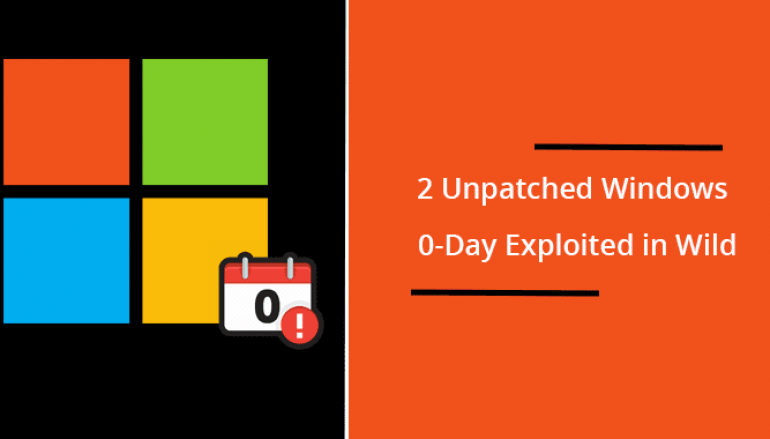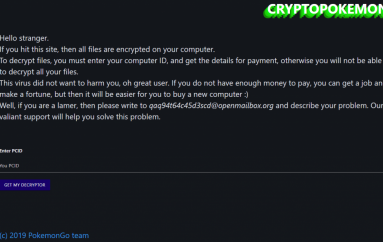
Hackers Exploiting 2 Unpatched Windows 0-Day Vulnerabilities in Wide – Microsoft Warns
Microsoft issued a security warning for two unpatched critical windows 0-day vulnerabilities and the attackers currently exploiting in wide by executing arbitrary code remotely.
2 Vulnerabilities are uncovered in the Adobe Type Manager Library that affects all versions of Windows, and there is no patch available at this moment.
“Two Windows 0-day remote code execution vulnerabilities exist in Microsoft Windows when the Windows Adobe Type Manager Library improperly handles a specially-crafted multi-master font – Adobe Type 1 PostScript format,” Microsoft says.
The vulnerability described by Microsoft as “Type 1 Font Parsing Remote Code Execution Vulnerability” and the hackers attempting to exploiting these vulnerabilities in multiple ways.
Attackers compromising a user to open a specially crafted document or viewing it in the Windows Preview pane to exploit these Windows 0-day vulnerabilities.
Microsoft also clarifies that the vulnerabilities are used for limited targeted attacks that could leverage unpatched vulnerabilities in the Adobe Type Manager Library.
Vulnerable Windows Versions
| Product | Impact | Severity |
| Windows 10 for 32-bit Systems |
Remote Code Execution | Critical |
| Windows 10 for x64-based Systems | Remote Code Execution |
Critical |
| Windows 10 Version 1607 for 32-bit Systems | Remote Code Execution |
Critical |
| Windows 10 Version 1607 for x64-based Systems | Remote Code Execution |
Critical |
| Windows 10 Version 1709 for 32-bit Systems | Remote Code Execution |
Critical |
| Windows 10 Version 1709 for ARM64-based Systems | Remote Code Execution |
Critical |
| Windows 10 Version 1709 for x64-based Systems | Remote Code Execution |
Critical |
| Windows 10 Version 1803 for 32-bit Systems | Remote Code Execution |
Critical |
| Windows 10 Version 1803 for ARM64-based Systems | Remote Code Execution |
Critical |
| Windows 10 Version 1803 for x64-based Systems | Remote Code Execution |
Critical |
| Windows 10 Version 1809 for 32-bit Systems | Remote Code Execution |
Critical |
| Windows 10 Version 1809 for ARM64-based Systems | Remote Code Execution |
Critical |
| Windows 10 Version 1809 for x64-based Systems | Remote Code Execution |
Critical |
| Windows 10 Version 1903 for 32-bit Systems | Remote Code Execution |
Critical |
| Windows 10 Version 1903 for ARM64-based Systems | Remote Code Execution |
Critical |
| Windows 10 Version 1903 for x64-based Systems | Remote Code Execution |
Critical |
| Windows 10 Version 1909 for 32-bit Systems | Remote Code Execution |
Critical |
| Windows 10 Version 1909 for ARM64-based Systems | Remote Code Execution |
Critical |
| Windows 10 Version 1909 for x64-based Systems | Remote Code Execution |
Critical |
| Windows 7 for 32-bit Systems Service Pack 1 | Remote Code Execution |
Critical |
| Windows 7 for x64-based Systems Service Pack 1 | Remote Code Execution |
Critical |
| Windows 8.1 for 32-bit systems | Remote Code Execution |
Critical |
| Windows 8.1 for x64-based systems | Remote Code Execution |
Critical |
| Windows RT 8.1 | Remote Code Execution |
Critical |
| Windows Server 2008 for 32-bit Systems Service Pack 2 | Remote Code Execution |
Critical |
| Windows Server 2008 for 32-bit Systems Service Pack 2 (Server Core installation) |
Remote Code Execution |
Critical |
| Windows Server 2008 for Itanium-Based Systems Service Pack 2 | Remote Code Execution |
Critical |
| Windows Server 2008 for x64-based Systems Service Pack 2 | Remote Code Execution |
Critical |
| Windows Server 2008 for x64-based Systems Service Pack 2 (Server Core installation) |
Remote Code Execution |
Critical |
| Windows Server 2008 R2 for Itanium-Based Systems Service Pack 1 | Remote Code Execution |
Critical |
| Windows Server 2008 R2 for x64-based Systems Service Pack 1 | Remote Code Execution |
Critical |
| Windows Server 2008 R2 for x64-based Systems Service Pack 1 (Server Core installation) |
Remote Code Execution |
Critical |
| Windows Server 2012 | Remote Code Execution |
Critical |
| Windows Server 2012 (Server Core installation) | Remote Code Execution |
Critical |
| Windows Server 2012 R2 | Remote Code Execution |
Critical |
| Windows Server 2012 R2 (Server Core installation) | Remote Code Execution |
Critical |
| Windows Server 2016 | Remote Code Execution |
Critical |
| Windows Server 2016 (Server Core installation) | Remote Code Execution |
Critical |
| Windows Server 2019 | Remote Code Execution |
Critical |
| Windows Server 2019 (Server Core installation) | Remote Code Execution |
Critical |
Microsoft working for The Fix
Microsoft is aware of this vulnerability and working on a fix and the update will be released on next month patch Tuesday updates.
“Systems running supported versions of Windows 10 a successful attack could only result in code execution within an AppContainer sandbox context with limited privileges and capabilities,” Microsoft said.
Workarounds
Microsoft recommended applying the following workarounds to reduce the risk of exploiting the vulnerabilities.
Disabling the Preview and Details panes in Windows Explorer prevents the automatic display of OTF fonts in Windows Explorer that prevent malicious files from being viewed in Windows Explorer.
“Disabling the WebClient service helps protect affected systems from attempts to exploit this vulnerability by blocking the most likely remote attack vector through the Web Distributed Authoring and Versioning (WebDAV) client service.”
Rename ATMFD.DLL to prevent potential exploits from working is another recommended workaround.
You can read the details of the complete workarounds and follow the steps.
This post Hackers Exploiting 2 Unpatched Windows 0-Day Vulnerabilities in Wide – Microsoft Warns originally appeared on GB Hackers.






